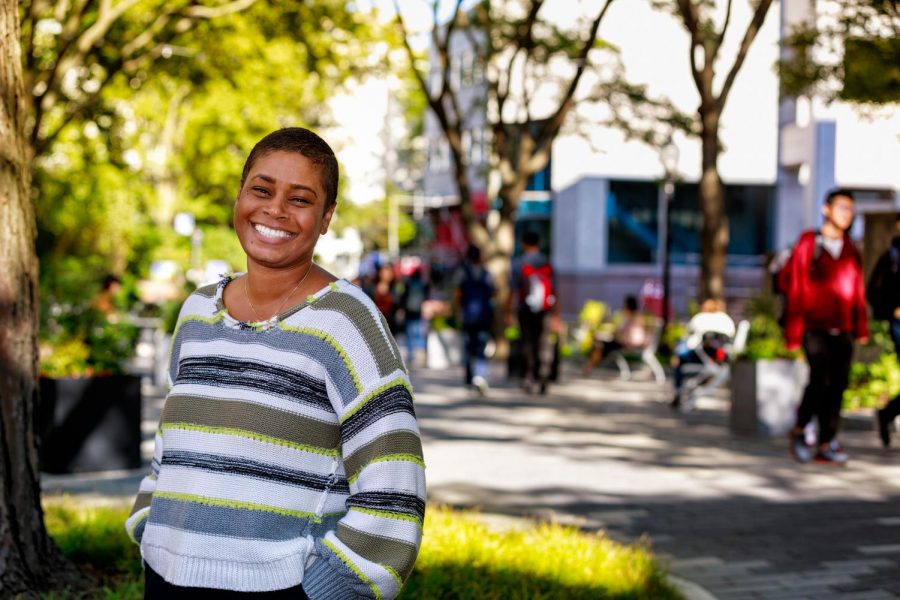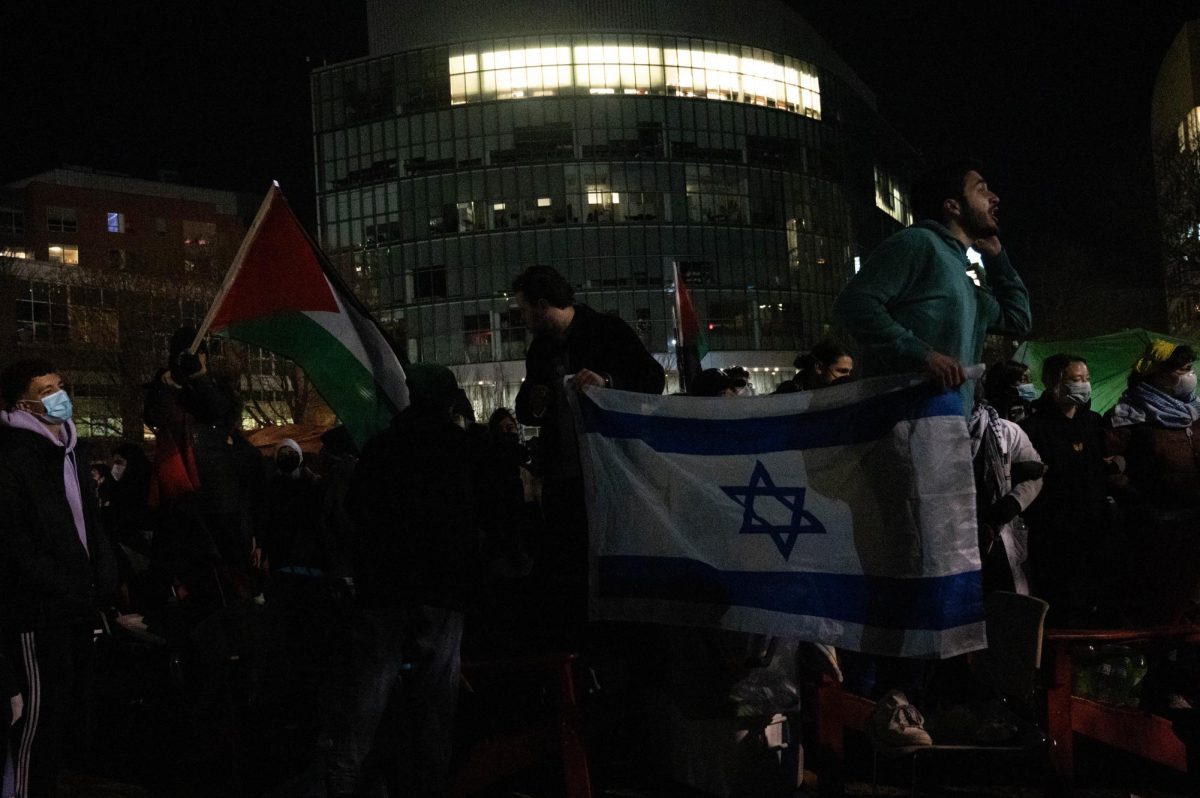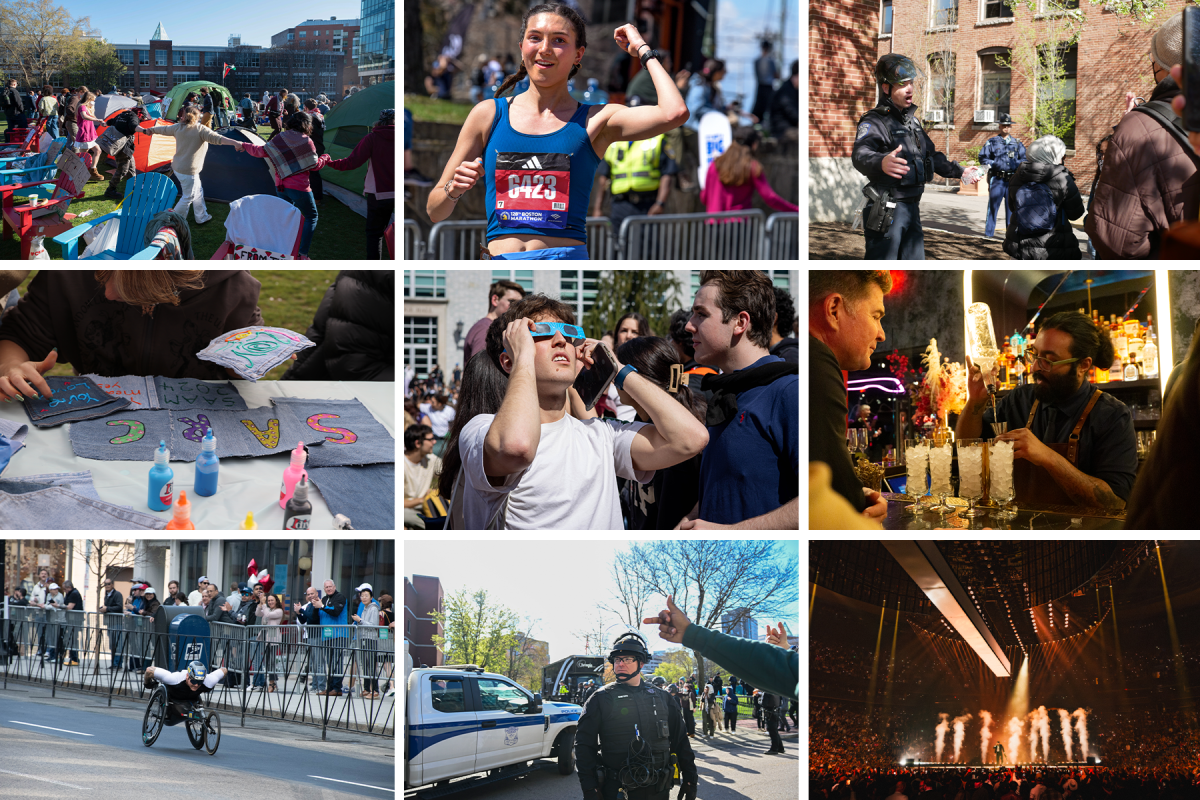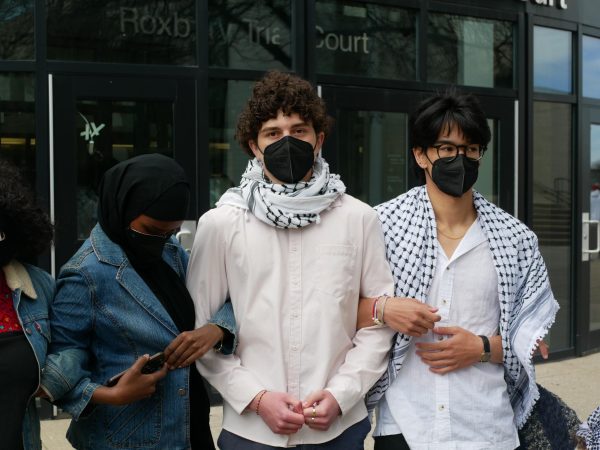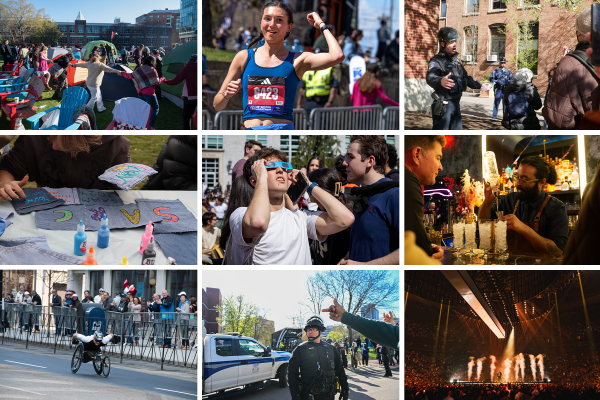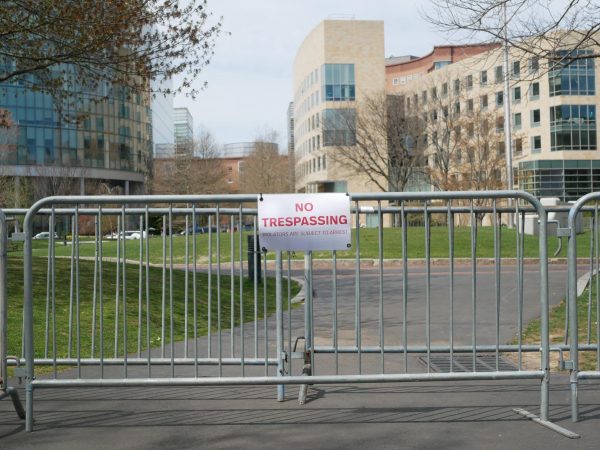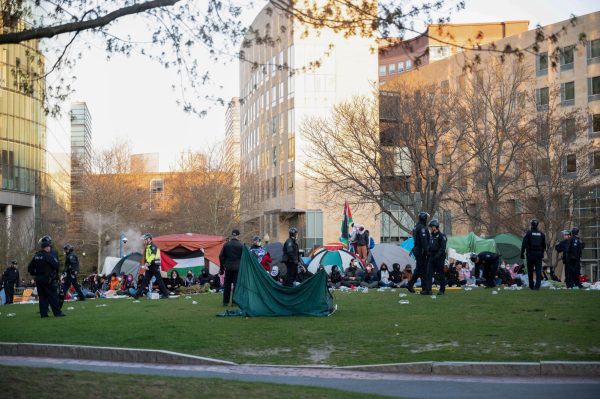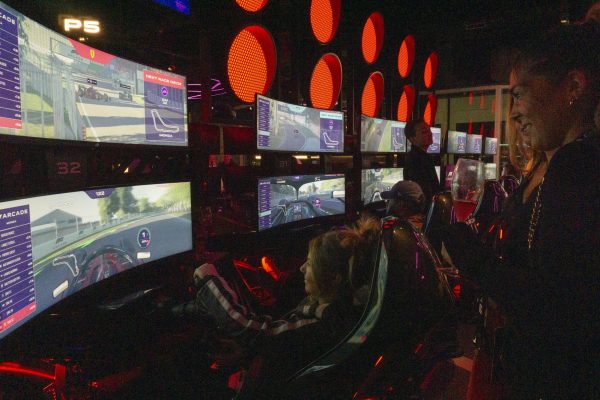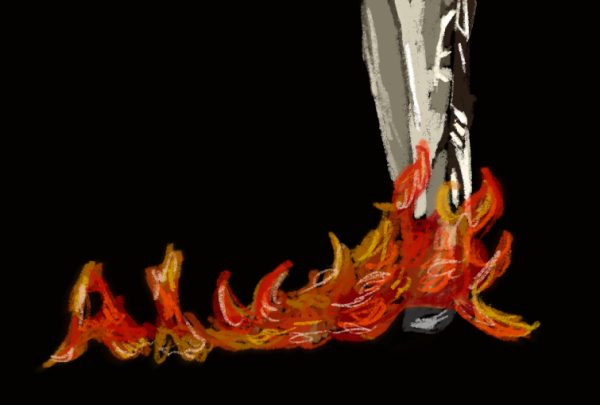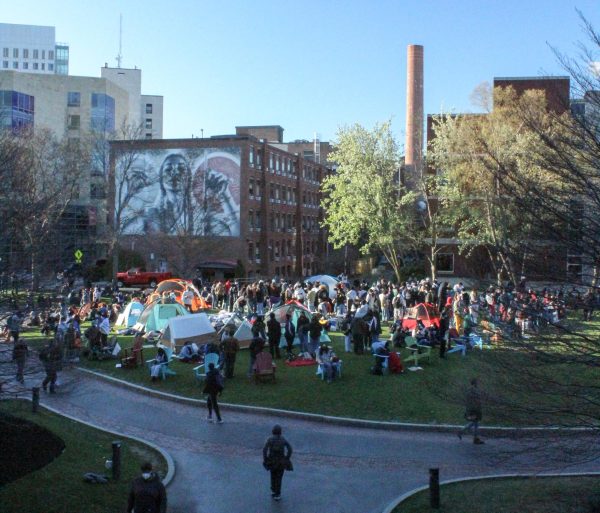With family in the midst of hurricane, Bahamian professor raises money for relief
Professor Minus is originally from the Bahamas.
September 19, 2019
Hurricane Dorian, the most destructive natural disaster in Bahamian history, has already taken 50 lives and left thousands injured and stranded. Although news of the catastrophe left many feeling helpless, Professor Marilyn Minus instead resolved to lend a hand.
Minus, a graduate professor in Northeastern’s mechanical engineering department, started a GoFundMe Sept. 4 to support Dorian’s victims. Raised in Freeport, Grand Bahama, Minus said she experienced hurricanes throughout her life, but none matched Dorian’s intensity.
“We deal with hurricanes all the time, just not at this magnitude,” Minus said. “Never like this, and I’ve lived through many hurricanes.”
News footage of ruined towns — the very places where Minus spent her childhood — hit a little too close to home.
“Growing up there and seeing it be just shattered on TV, and then my mom being in the midst of that, it was really difficult,” she said.
Dorian hovered over the Bahamas from Sept. 1 to Sept. 3, demolishing buildings and displacing families. The hurricane joined a growing number of Category 5 storms recorded since the 1980s. Although it’s hard to pinpoint a single cause, rising water temperatures are thought to contribute to the increase in frequency.
“In general, we expect that in a warmer atmosphere and a warmer ocean, hurricanes in the Atlantic will get more intense,” said Samuel Munoz, an assistant professor at Northeastern’s Marine Science Center.
Munoz researches flood mitigation by examining environmental evolvement throughout history. By analyzing sites of geological transformation, sediment samples from the past become doorways to the future.
“We take everything we know historically that’s happened, and we use that to model what’s the likelihood that an event like that would occur again,” Munoz said.
Scientists can predict incoming storms by diving deep into muddy layers of history — literally. Unassuming sand deposits, buried under murky shores, reveal a record of hydrological changes. Munoz investigates these histories to learn more about our current climate.
“A lot of the work I do tries to… go back a little bit further in time, to reconstruct what storms were like in the past, and then be able to have a little bit better understanding of like, what is possible? What can nature throw at us?” Munoz said. “Or, are some of these events totally unprecedented even within the last several thousand years? Which, that would sort of point to, something else driving that — like climate change.”
Professor Deborah Milbauer also expressed concerns about humanity’s global impact.
“The huge question has to do with climate change, and what we’re doing to the environment to increase the speed and the strength of these ‘natural’ disasters,” Milbauer said, stressing that “natural” should be put in quotes.
Milbauer, who has worked for years as a public health consultant, emphasized the importance of emergency preparedness. While resilient cities are able to withstand adversity, poorer countries lack the resources to mobilize. Milbauer said it is essential for populations to have a backup plan.
“You can’t necessarily prevent a hurricane, so to speak, setting aside the climate change issue, but you can minimize the impact,” Milbauer said.
The gross domestic product of the Bahamas is almost entirely dependent on tourism. Now, the country faces serious devastation that could affect their economy for years to come. Milbauer said recovery will depend on international involvement.
“The first way that you create international collaboration and partnerships is by not preventing people in emergencies from getting help when you can provide it,” Milbauer said.
A group of Dorian survivors were denied entry to the United States Sept. 9 after boarding a ferry bound inland. Rather than reaching safety on the shores of Fort Lauderdale, the passengers were told to disembark unless they carried visas. Milbauer disagrees with the government’s stance, advocating for the protection of asylum-seekers.
“There needs to be a plan for getting people off the island, and where they’re going to land, who’s going to provide them food and housing and medicine,” Milbauer said. “Climate change is an international disaster, and we are all in this together.”
Despite preventative methods to combat disasters, there’s only so much that can be done. When cataclysms loom on the horizon, evacuation is the only safe option. “In that really kind of extreme case, the only real solution is to get out of the way of this thing.” Munoz said.
Minus said she is committed to helping the families that couldn’t escape.
“While I’m able to take care of my own family, and everyone is safe and we can deal with whatever damages we receive, I just felt an obligation to my home to try and help as many people as possible who lost everything,” Minus said.
While larger organizations, like the Red Cross, cover the essentials, Minus said she wants to fill in the gaps. She is determined to supply anything from pet food to school uniforms — all while ensuring the community keeps its faith.
“Just getting some semblance of normalcy will help people to heal. They have a lot of rebuilding, and the Bahamas people are really resilient, really kind, really helpful to one another,” Minus said. “But it’s just providing that little spark of hope.”
When the airports reopen, Minus said she will travel to Freeport, where her mother and grandmother still reside. There, she plans on providing direct assistance. A school, owned by her mother, will operate as her central hub.
“I will leave the fund open for as long as I can, but no matter what, I want to get down there as soon as I can, and so I sense that’s my goal,” Minus said. “I’m just happy with having something to help.”
Minus said she is grateful for the friends, students and strangers that donated. So far, the fundraiser has made over $7,000 out of a $10,000 goal. For Minus, every cent counts.
“I think a little goes a long way, and I plan on trying to stretch every dollar that’s been given to this as far as I can,” she said.
Minus also said she wants to remind Northeastern students that the campus is a global community.
“We are a strong group of students who care about a lot of goals, and any contribution that anybody wants to give — even just words of encouragement — just brings hope.” Minus said. “That allows people enough strength to keep going forward. And that’s kind of what I want to do.”


